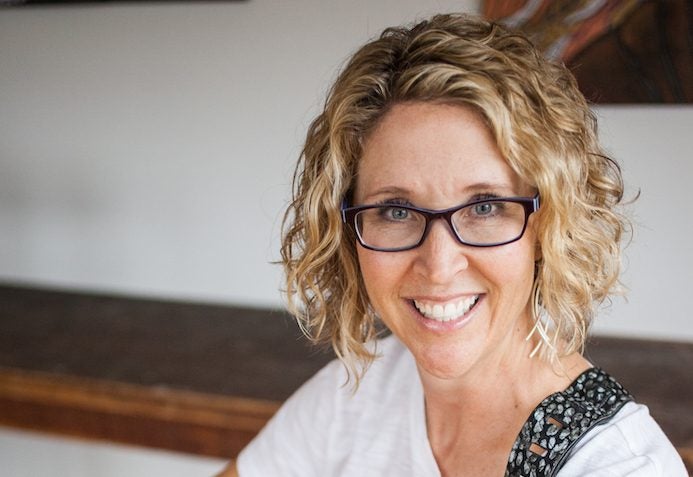Let the bread, yourself rest
Published 11:11 am Monday, December 10, 2018

- Erin Smith is the owner of the OM place in Winchester, the author of “Sensible Wellness” and the online host of the OM channel. Follow her on Twitter @erinsmithauthor.
My love for carbohydrates is no secret.
My father is a renowned baker and makes homemade bread, rolls and biscuits almost every day.
Growing up, many a bad day was turned around by a hot roll dipped in melted, salted butter.
For me, homemade bread tastes like comfort.
Last week, I got my rolling pin out for the first time in ages.
I dissolved the yeast, measured the flour and salt and olive oil, my body in flow with dough, no need to consult a recipe.
Every step came back and soon the kitchen was filled with the enticing aroma of a baking loaf.
I slid the perfectly-browned loaf out of the oven.
I couldn’t even wait for the bread to cool. I burned my fingers ripping off an end and soaking it in some Amish butter.
But, to my dismay and disappointment, it tasted terrible, chewy and dense.
No need to retrace my steps, ask what went wrong. It’s always the same with me.
In my haste to get on to the next thing, I had rushed the resting process.
When you allow dough to rest sufficiently, the gluten molecules “relax” and form small air pockets, creating a light bread with greater volume. Without enough rest, bread will be a tasteless failure.
Just like dough, we all need rest.
But it seems like the world is moving faster and faster, and rest is only for the lazy or sick. As the saying goes, to rest is to rust.
But resting is a beneficial, natural state.
In fall, the fields and forests rest, shoring up energy to bring forth come spring.
I once had a cat go missing for two weeks. We thought a coyote got her, but it turned out she had wounded her back leg on a barbed wire fence. She hid out somewhere and rested until she healed, then limped back into our lives, skinny and happy to be home.
Every great spiritual teacher reminds us to rest.
God commanded the Sabbath be kept holy.
Buddha instructed the past was gone and the future uncertain, so it was imperative to stay relaxed and at ease in the present moment. Buddhists today practice Uposatha, a day of resting based on the lunar calendar.
Jews observe Shabbat as a time of renewal and peace.
Muslims take a noontime rest to pray Jumah.
If you sought the advice of a Native American shaman, she might ask you when you stopped sitting in silence.
Ancient Egyptians so revered sleep, and the accompanying dreams, they would soak their blankets in water before turning in to keep themselves cool all night long. Ancient papyri describe using poppy seeds, or opium, to get the “necessary” 10 hours of sleep each night.
But we’ve turned away from these teachings.
Sunday, the traditional day of resting, is just another day to be hectic and productive. We can work, shop and slog through our chore list.
We’re running faster, working harder and burning out at warp speed. But to what end?
A life without rest is just like that loaf of bread: tasteless and unnecessarily tough.
This past year, my family has very intentionally tried to take back Sunday. We figured if even God, with his unlimited creative energy, needed a day of rest, who are we to think we should power through being efficient, industrious and fruitful?
So we adopted sonntagsruhe (SAN two gow bend), which is German for “Sunday rest.”
You see, in Germany, Sunday is for stopping. The long-held custom of sonntagsruhe means all shops are closed (only gas stations are legally allowed to remain open) and loud noises are restricted (you can be fined for using lawn mowers or leaf blowers on sonntagsruhe).
Since Germany remains the fourth largest economic powerhouse, it seems like it’s working.
For us, sonntagsruhe means movies and naps and meditating and crockpot meals that cook all day and fill the house with delicious aromas.
It means reading for pleasure (me), watching football and building fires (David) and crafting (Izzie).
It means long hikes at the gorge and jigsaw puzzles.
It means recharging and turning down the volume on a results-driven culture.
A life of purpose requires rest, introspection and relaxation. How could your family be like bread and lean into the idea of the benefits of rest?
Erin Smith is the owner of the OM place in Winchester, the author of “Sensible Wellness” and the online host of the OM channel. Follow her on Twitter @erinsmithauthor.





